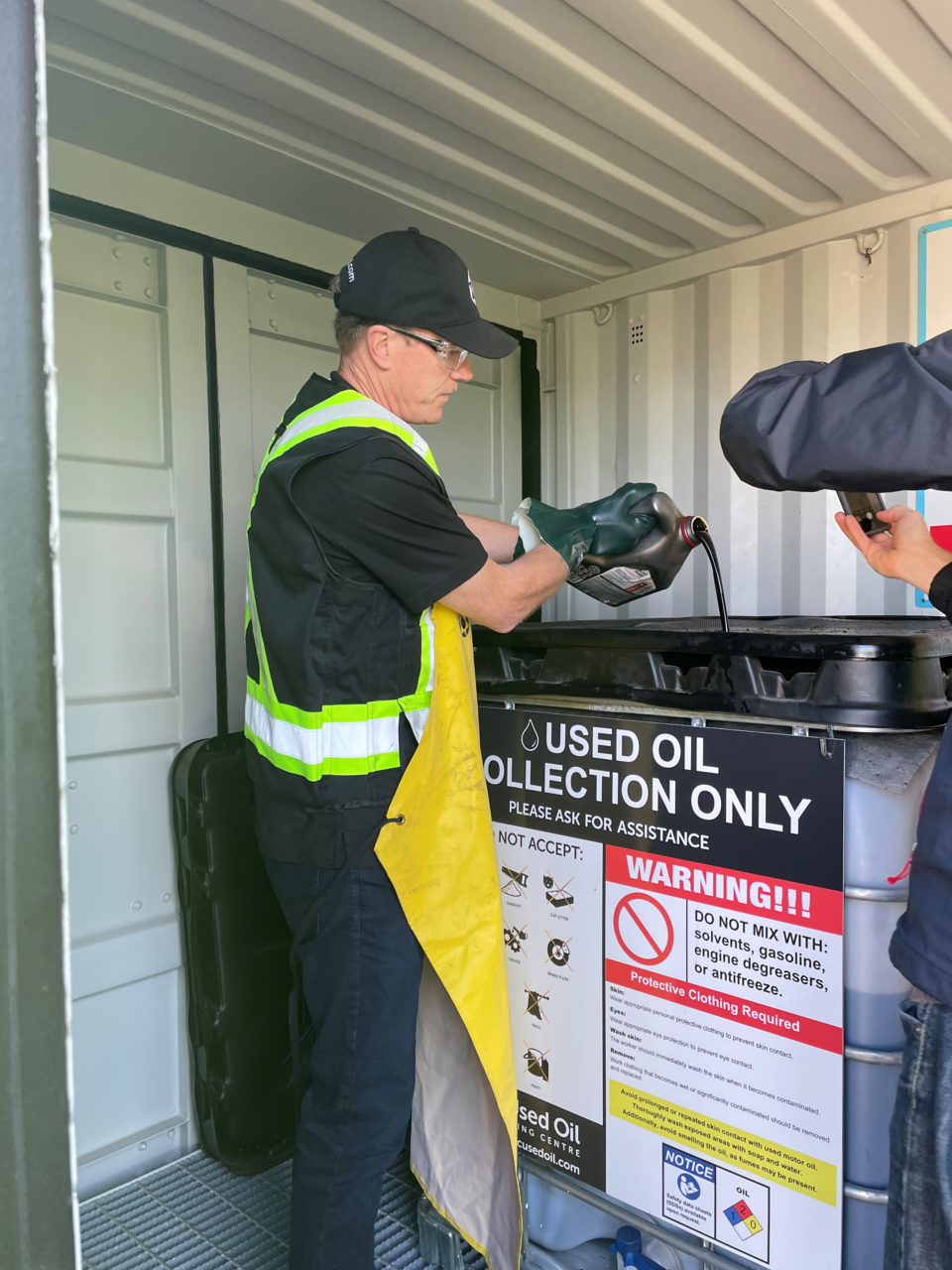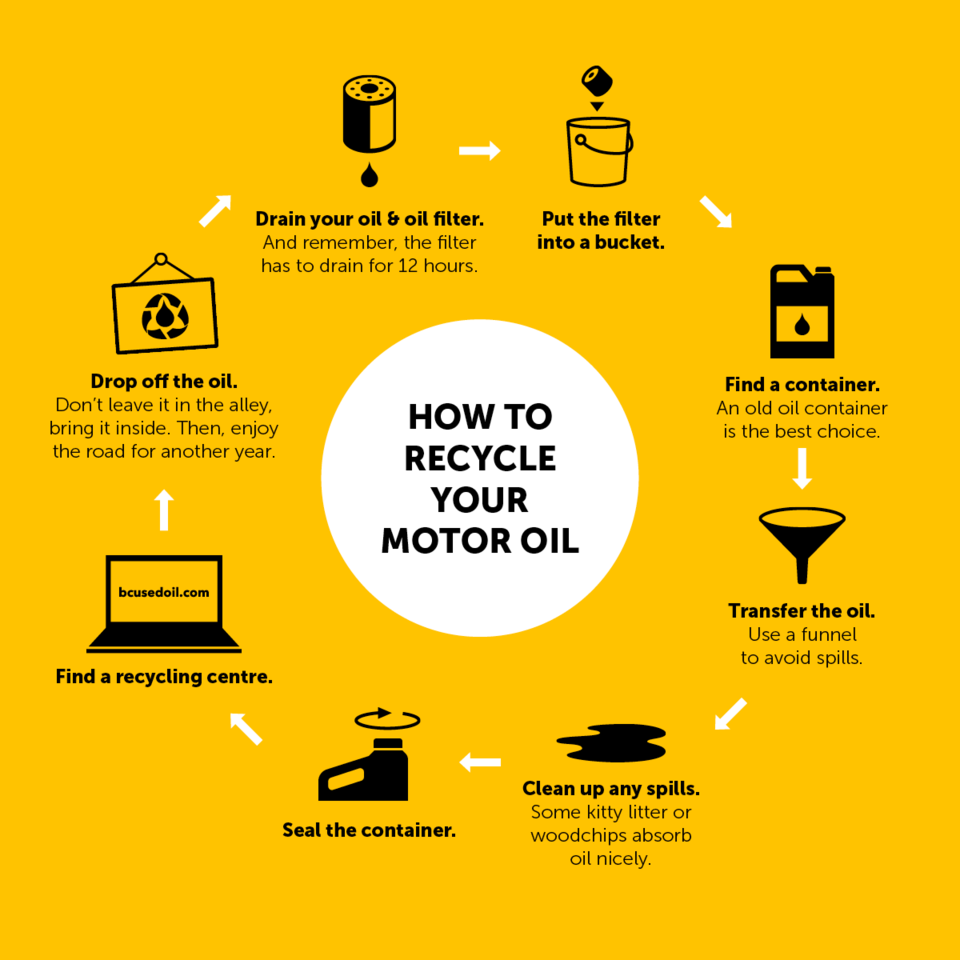Changing your car’s oil? Here’s how to recycle it safely
It takes 85% less energy to refine motor oil than to produce it from crude oil
Even if you’ve never heard of it, chances are you already play an important role in helping the BC Used Oil Management Association (BCUOMA) collect and recycle used motor oil.
That’s because every time you take your vehicle to an approved lubricants store or your local dealer for service, that company has a duty to ensure that the used oil they reclaim is recycled safely and in an environmentally friendly manner.
In addition, program materials, including used engine oil, antifreeze, oil filters, and oil and antifreeze containers, will be collected at locations throughout the province and shipped to BC facilities for processing. In fact, of all the materials collected by BCUOMA in 2021, 69% of the waste oil and 100% of the used antifreeze were recycled into new products and sold back to the market, promoting a circular economy that can repeat itself indefinitely without this happening quality is lost.

Even used plastic oil and antifreeze containers and metal oil filters are recyclable in BC. In fact, in 2021, 100% of the plastic containers and 98% of the filters collected by BCUOMA were recycled into clean materials to make new products.
If that’s not reason enough to make sure your used oil is recycled, how about this statistic: It takes 85% less energy to refine motor oil than to make it from crude oil. Therefore, by capturing and refining used oil, BCUOMA eliminates the risk of it entering and damaging the environment.
“The BC Used Oil Management Association continues to explore opportunities to work with municipalities, private companies and non-profit organizations to expand and improve used oil and antifreeze recycling centers across the province and ensure program materials are collected, managed and stored responsibly,” says David Lawes, CEO, BC Used Oil Management Association.
“As more used oil and antifreeze materials are safely collected and diverted from the waste stream, the greater the opportunity for those materials to be re-refined and resold in BC, putting the province’s environment and social and economic fabric in a regenerative loop supports economy closed loop system.”

However, if you prefer to change your oil yourself, here are some helpful tips to ensure it is properly recycled:
· Drain your oil and then use a funnel to pour the oil into a container.
· Clean up oil stains (kitty litter and wood shavings absorb oil well).
· Close container tightly and keep in a safe place.
· Visit bcusedoil.com to find your nearest public recycling center.
· Drop off your oil during business hours.
To find the nearest public recycling center where you can drop off your program materials for free, visit bcusedoil.com/find-a-recycling center.